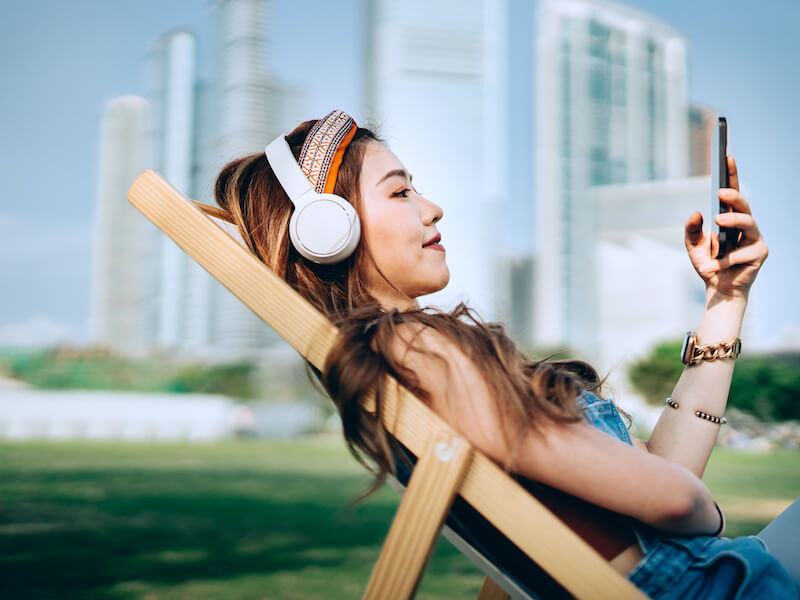
Aiden loves music. He listens to Spotify while working, switches to Pandora while jogging, and he has a playlist for everything: gaming, gym time, cooking, and everything else. Everything in his life has a soundtrack and it’s playing on his headphones. But the very thing that Aiden loves, the loud, immersive music, may be contributing to irreversible harm to his hearing.
As far as your ears are concerned, there are healthy ways to listen to music and dangerous ways to listen to music. But the more dangerous listening option is usually the one most of us choose.
How does listening to music lead to hearing loss?
As time passes, loud noises can cause degeneration of your hearing abilities. We’re accustomed to thinking of hearing loss as an issue associated with aging, but the latest research is revealing that hearing loss isn’t an intrinsic part of getting older but is instead, the result of accumulated noise damage.
It also turns out that younger ears are especially susceptible to noise-related damage (they’re still growing, after all). And yet, the long-term damage from high volume is more likely to be dismissed by young adults. So because of extensive high volume headphone usage, there has become an epidemic of hearing loss in younger individuals.
Is there a safe way to enjoy music?
Unlimited max volume is obviously the “hazardous” way to enjoy music. But simply turning the volume down is a less dangerous way to listen. Here are a couple of general recommendations:
- For adults: No more than 40 hours of weekly listening on a device and keep the volume below 80dB.
- For teens and young children: You can still listen for 40 hours, but keep the volume level below 75dB.
Forty hours every week translates into about five hours and forty minutes a day. That may seem like a lot, but it can go by rather rapidly. Even still, most individuals have a fairly solid concept of keeping track of time, it’s something we’re taught to do successfully from a very young age.
Monitoring volume is a little less intuitive. On most smart devices, smartphones, and TVs, volume is not calculated in decibels. Each device has its own arbitrary scale. It might be 1-100. But perhaps it’s 1-16. You might not have any idea how close to max volume you are or even what max volume on your device is.
How can you listen to tunes while monitoring your volume?
It’s not very easy to tell how loud 80 decibels is, but thankfully there are some non-intrusive ways to tell how loud the volume is. It’s even more difficult to understand the difference between 80 and 75dB.
So using one of the numerous noise free monitoring apps is greatly suggested. Real-time readouts of the noise around you will be obtainable from both iPhone and Android apps. That way you can track the dB level of your music in real-time and make alterations. Your smartphone will, with the correct settings, inform you when the volume gets too loud.
The volume of a garbage disposal
Your garbage disposal or dishwasher is usually around 80 decibels. So, it’s loud, but it’s not that loud. It’s a relevant observation because 80dB is about as much noise as your ears can handle without damage.
So pay close attention and try to avoid noise above this volume. And limit your exposure if you do listen to music above 80dB. Maybe listen to your favorite song at full volume instead of the whole album.
Listening to music at a loud volume can and will cause you to have hearing problems over the long term. Hearing loss and tinnitus can be the result. Your decision making will be more educated the more mindful you are of when you’re entering the danger zone. And hopefully, those decisions lean towards safer listening.
Call us if you still have questions about the safety of your ears.
